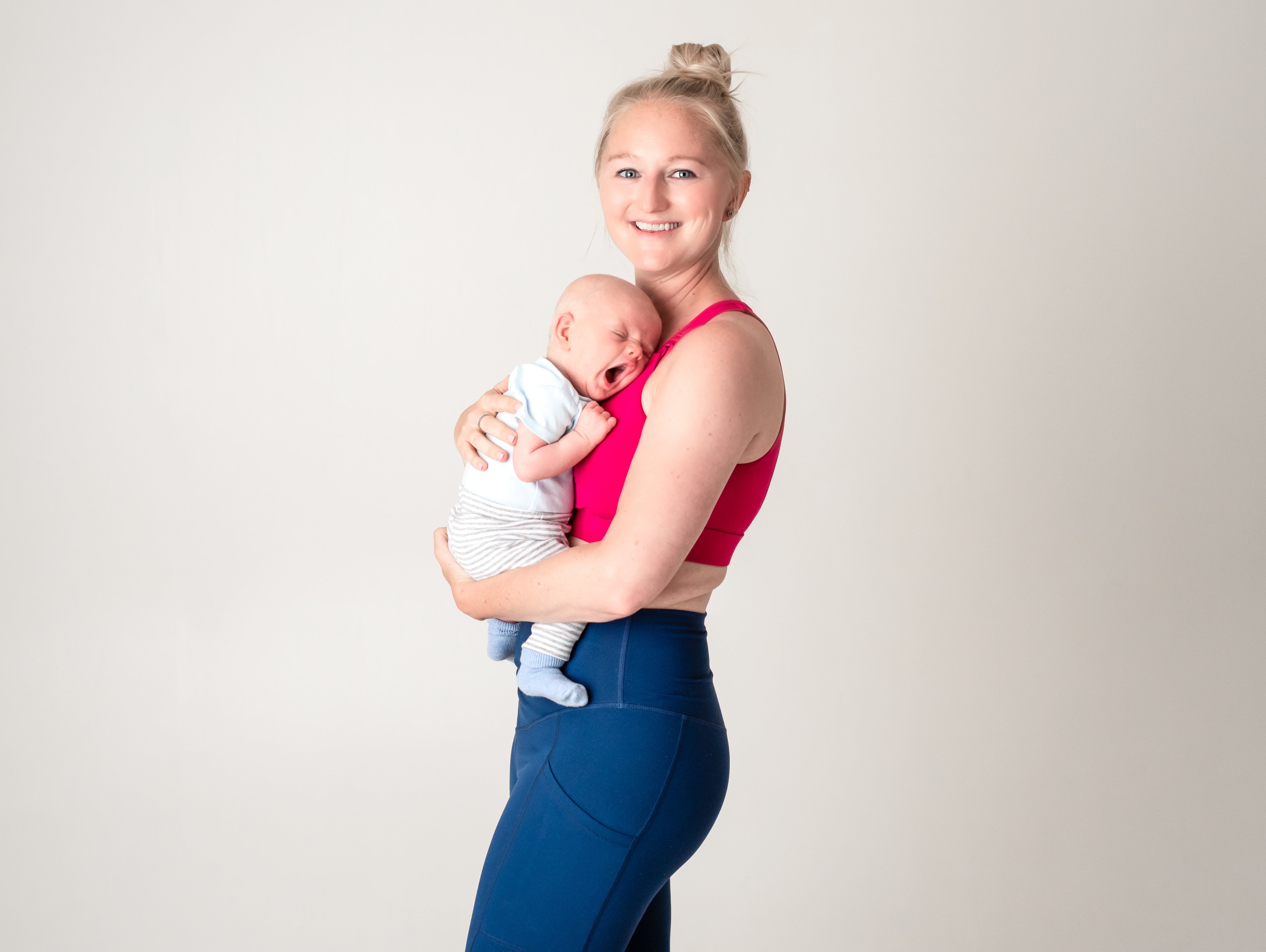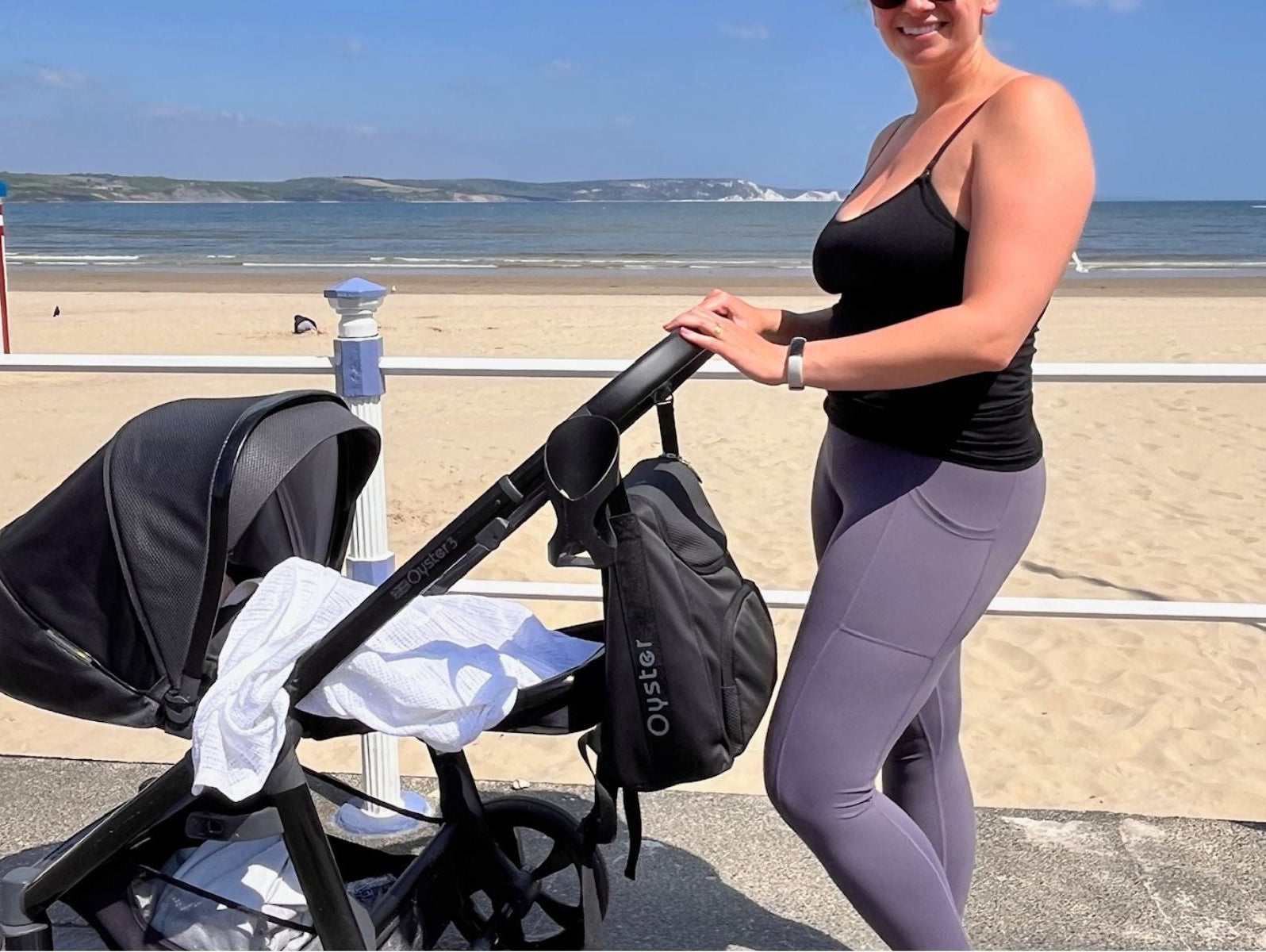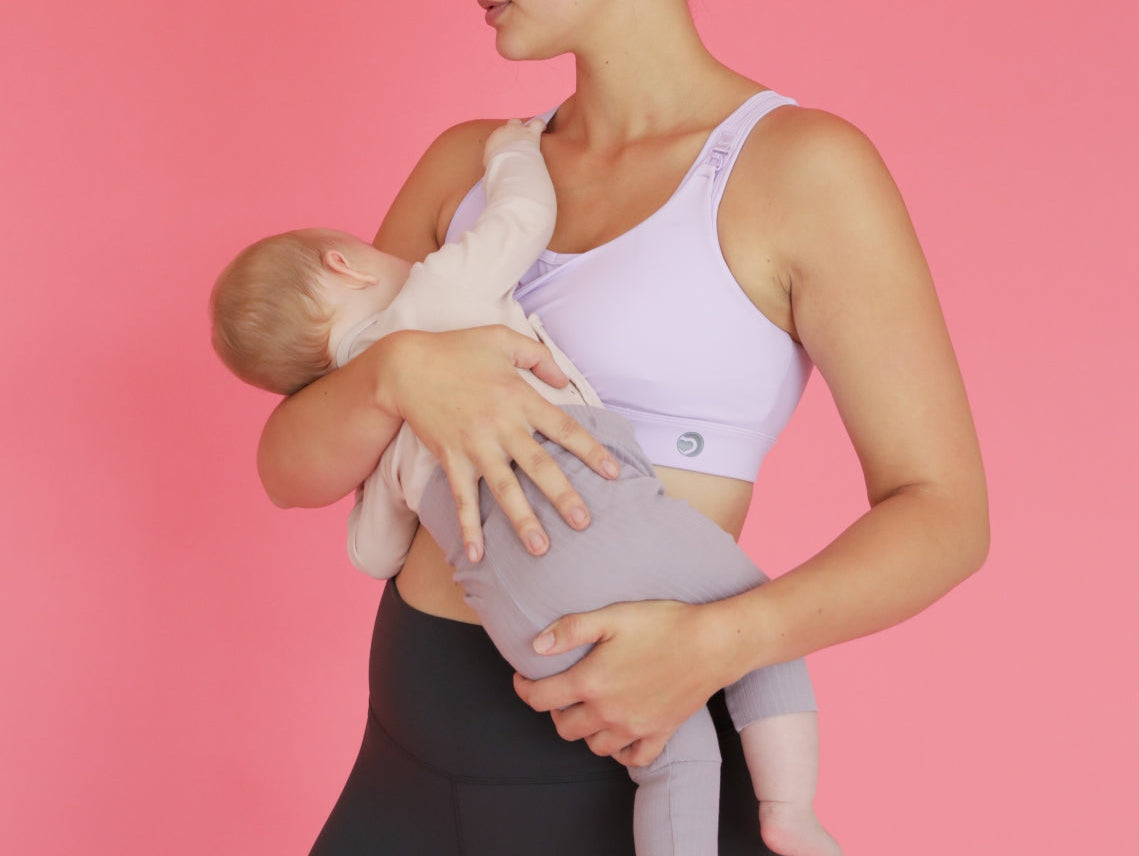Those of us who try to fit in some regular exercise know the positive impact it can have on our general mental well being and continuing a regular exercise programme in pregnancy is no different. But can exercise in pregnancy prevent postnatal depression once your baby is born?
Postnatal depression is a very complex area and is known to be the most common mental disorder of women recorded after the birth of a child, with 1 in 10 women experiencing it in the year after having their baby . Risk factors predisposing someone to PND include a previous history of depression, feelings of anxiety or loneliness in pregnancy, as well as those who have experienced complications during pregnancy or the birth.
The birth of a child can be associated with many positive as well as negative feelings, and we shouldn’t shy away from this fact. Whether your experience postnatally is a good or bad one, no experience is wrong and no experience is yours alone.
And while no woman is in any way at fault if they experience mental health issues after the birth of their child, research is now showing us that sustaining moderate levels of activity during pregnancy can possibly lower the likelihood that PND is something that affects you. In fact, researchers have gone as far to state the physical activity can be an essential factor in the prevention of depressive disorders of women in the postnatal period.
This is an area that has been highly researched in recent years. A number of studies have shown that women who keep fit during pregnancy are more relaxed and therefore cope better with the strains of pregnancy as well as the demands of labour. As a rule, women who exercise have a better sense of wellbeing due to a number of positive effects from exercise such as greater weight control, better body image and self-esteem, improved sleep and increased energy levels. It is believed that this positive effect on mental health continues after pregnancy and may decrease the incidence of postnatal depression.
So what constitutes the right amount of exercise?
The American College of Obstetricians and Gynaecologists recommends a minimum of 150 min of moderate physical activity within a week for pregnant women and after childbirth. In the UK the NHS suggests a 30 minute session every day – even if this is just a brisk walk. A rule of thumb is that you should be able to hold a conversation as you exercise – don’t push it too hard.
What if I haven’t exercised before pregnancy? Is it too late to start?
If you haven’t been a regular exerciser before pregnancy, studies have shown that the benefits in terms of reduced incidence of PND are at their greatest for you.
It’s true that if you are new to working out then this isn’t the time to go hell for leather and attempt your first marathon. But that’s not to say you can’t start with something. Start slowly, in 15 minute bursts, with light exercise that just gets your heart rate up gently. Over time build up as you feel comfortable. If you start an aerobics group, be sure to tell your instructor that you are pregnant and they will adapt the routine to suit you. Exercise doesn’t need to be strenuous to be beneficial.
Top tips for exercising in pregnancy
The NHS has some great, yet simple advice for exercising in pregnancy:
- always warm up before exercising, and cool down afterwards
- try to keep active on a daily basis – 30 minutes of walking each day can be enough, but if you cannot manage that, any amount is better than nothing
- avoid any strenuous exercise in hot weather
- drink plenty of water and other fluids
- if you go to exercise classes, make sure your teacher is properly qualified and knows that you're pregnant, as well as how many weeks pregnant you are
- you might like to try swimming because the water will support your increased weight
- exercises that have a risk of falling, such as horse riding, downhill skiing, ice hockey, gymnastics and cycling, should only be done with caution. Falls carry a risk of damage to your baby
What are the signs of PND?
A feeling known as ‘the baby blues’ is very common in the first two weeks following birth, but postnatal depression is longer lasting and in fact can show symptoms as late as a year after birth. Many women may not realise they are suffering simply because it can develop so gradually.
Symptoms include:
- A persistent feeling of sadness and low mood
- A lack of enjoyment and loss of interest in the wider world
- Trouble sleeping at night and feeling tired in the day
- Difficulty bonding with your baby
- Withdrawing from other people
- Problems concentrating and making decisions
- Frightening thoughts – for example about hurting your baby
If I exercise, does that mean I won’t suffer from PND?
Exercise is by no means a guarantee that you won’t be unlucky enough to suffer with PND, just as not exercising doesn’t mean you will suffer. But if there’s a chance it can help, what better reason to keep up what you feel comfortable with.




